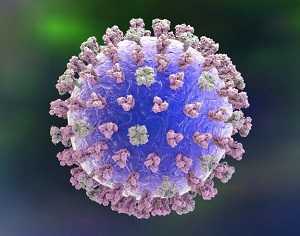WHAT IS FLU? In fact, you can catch the flu virus (influenza) at any time of the year.
But, it is more prevalent in the winter months, peaking from December to March. That is also the reason why some people call it ‘seasonal flu’.
As a rule, there are ways of treating the flu without visiting your GP. You should start to feel better within a week.
Cold and flu symptoms share some similarities. But, flu tends to make you feel more ill and can be more severe. So, how can you tell the difference between a common cold and flu virus?
- Flu tends to appear quickly often within a few hours. Whereas a cold usually appears as a gradual process.
- Having the flu will affect many parts of your body. A common cold will mainly affect your nose and throat.
- The flu virus will make you feel exhausted and very unwell. A cold also makes you feel unwell, but you would usually be able to carry on your daily routine as normal (e.g. going to work).
Often, you can treat flu with home remedies. But, it is important to protect yourself and others from catching the illness. Getting the flu vaccine (if you qualify) can also help to prevent and reduce the spread of influenza.
Common Symptoms of Flu
The symptoms of flu include:
 Aching body and muscles
Aching body and muscles- Dry, unproductive cough
- Exhaustion, fatigue, and tiredness
- Headache
- Insomnia
- Loss of appetite
- Runny nose
- Sensitivity to light
- Shortness of breath or a dry chesty cough
- Sore throat
- Sudden fever especially with children (temperature 38–40°C)
- Vomiting, nausea, or diarrhoea (sometimes with stomach pain)
Note: Flu symptoms, treatment, and prevention vary to those of a common cold. A different group of viruses cause it which means a full recovery can take longer.
Ways to Treat Flu Yourself
Symptoms of flu tend to peak within a few days and rarely last more than a week. Older people, and people with medical conditions, are among the most vulnerable. It can lead to serious illness if complications develop. It can also be life threatening in extreme cases.
Note: NHS offers an injected flu vaccine free of charge for people who are at most risk (e.g. pregnant women).
In most cases, flu develops into nothing more than a mild illness for five to eight days. So, you should be able to treat it at home. There are several ways to help speed up the recovery, including:
- Drinking lots of water to avoid dehydration (urine should be clear or light yellow in colour).
- Getting plenty of rest and sleep.
- Staying warm.
- Taking paracetamol or ibuprofen to lower your body temperature (and relieve aches and pains).
Note: Anyone with a high temperature or breathing difficulties should contact their GP. But, avoid attending an emergency department unless it is urgent and essential.
When to Visit a GP or Call NHS 111
In most cases, a pharmacist will be able to give treatment advice and recommend the best flu remedies. Even so, certain circumstances increase the consideration for visiting your doctor (GP) or calling NHS 111, such as if:
- You are 65 years of age or older.
- You have a long-term medical condition (e.g. diabetes, kidney disease, lung disease, or a neurological disease).
- You are pregnant.
- You have a weakened immune system (e.g. due to chemotherapy or HIV).
- Your flu symptoms are getting worse over a period of time or they have not improved after seven (7) days.
- You develop chest pain, difficulty breathing, shortness of breath, or you cough up blood. If so, call 999 or go to the nearest ‘Accident and Emergency’ department.
You may need medication for some of these conditions. The medicine can treat or prevent further complications of flu. A doctor may also recommend taking antiviral medicine. This should reduce the symptoms and help speed up the recovery.
Note: GPs do not recommend taking antibiotics as a treatment for flu. They will not relieve the symptoms after catching the flu or speed up the recovery process.
How Flu Spreads
Flu is one of the most infectious diseases and conditions that affect public health. Thus, it is very easy to spread the virus to other people (especially in the first 5 days).
An infected person can spread the germs in droplets of saliva when they cough or sneeze. Inhaling the droplets means you may get infected.
In fact, the germs can live on your hands and on some surfaces for up to 24 hours. So, if you are infected with flu try to avoid touching:
- Commonly shared surfaces with unwashed hands (e.g. door handles).
- Someone else’s hand (unless you wash your hands first).
How to Prevent the Spread of Flu Virus
There are several simple steps you can take to help reduce the risk of spreading the flu virus. Effective influenza virus prevention methods include:
- Carrying tissues to cover your mouth and nose and trap germs when coughing or sneezing.
- Disposing of dirty tissues in the bin without delay (i.e. trap it, bin it, kill it).
- Washing your hands often with warm water and soap.

